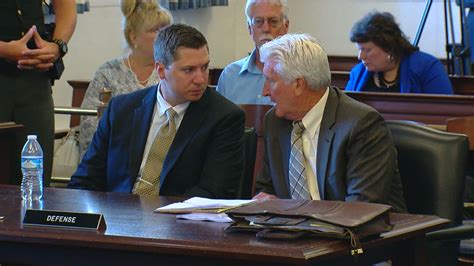
Music legend Barry Manilow, 77, has stunned fans by revealing his 1976 chart-topper “I Write the Songs,” famously associated with him, was conceived as a parody of overly sentimental songs, despite its earnest reception by the public. The revelation casts a new light on one of his signature hits, prompting discussions about the song’s meaning and Manilow’s artistic intentions.
Barry Manilow, a name synonymous with ballads and sentimental tunes, has dropped a bombshell that redefines the legacy of his iconic song “I Write the Songs.” In a recent interview, the 77-year-old musician disclosed that the song, which reached the pinnacle of the Billboard Hot 100 in 1976, was initially envisioned as a satirical take on the grandiose declarations often found in popular music. This revelation has sparked considerable debate and speculation among music enthusiasts and critics alike.
“I Write the Songs,” penned by The Beach Boys’ Bruce Johnston, became one of Manilow’s signature hits, celebrated for its sweeping melody and heartfelt lyrics. The song, which speaks of a universal source of musical inspiration, resonated deeply with audiences and cemented Manilow’s status as a pop music icon. However, Manilow’s recent statement introduces a new layer of complexity to the song’s interpretation.
According to Manilow, the song’s original concept was far from the earnest anthem it became. He explained that he approached the song with a sense of irony, intending to poke fun at the often-pretentious nature of songwriting. “It was supposed to be a parody,” Manilow stated in the interview. “I thought it was a funny idea to sing about how I write the songs, but really, who am I to say that? It was a joke, but nobody got it.”
This admission challenges the conventional understanding of “I Write the Songs” and invites a reevaluation of Manilow’s artistic intentions. While the song was embraced as a sincere expression of musical creativity, Manilow’s revelation suggests a more subversive undercurrent. The question now is whether the public’s perception of the song will shift in light of this new information.
The impact of Manilow’s revelation extends beyond mere trivia. It touches on the broader themes of artistic interpretation, the role of the artist, and the relationship between intent and reception. When an artist’s intended meaning diverges from the audience’s understanding, the result can be a fascinating interplay of irony and sincerity.
“I Write the Songs” is not the only example of a song whose meaning has been debated or reinterpreted over time. Many songs, across various genres, have taken on new significance in different contexts, often reflecting changing social or political landscapes. However, Manilow’s case is unique because it involves the artist explicitly stating that the song’s original intent was contrary to its widespread interpretation.
One of the central ironies of the situation is that Manilow’s intended parody became a massive hit, beloved by millions for its seemingly genuine sentiment. This raises questions about the nature of irony and its effectiveness in popular music. Can irony be truly appreciated when it is delivered within a framework of sincerity? Or does it inevitably get lost in translation, becoming just another layer of earnest expression?
Manilow’s career has spanned decades, marked by numerous hits and a dedicated fan base. He has consistently delivered crowd-pleasing performances and crafted songs that resonate with a wide audience. His music is often characterized by its emotional intensity and melodic appeal. In this context, the revelation that “I Write the Songs” was intended as a parody adds a surprising twist to his artistic persona.
The song itself is a masterful example of pop craftsmanship. Bruce Johnston’s composition is undeniably catchy, with a memorable melody and soaring arrangement. The lyrics, while seemingly straightforward, are open to interpretation, which may have contributed to the song’s widespread appeal.
The lyrics speak of a universal source of musical inspiration, suggesting that all songs ultimately originate from a single, divine source. This idea resonates with many listeners, who see music as a powerful force that transcends individual creativity. Manilow’s vocal performance further enhances the song’s emotional impact, conveying a sense of awe and wonder.
However, when viewed through the lens of Manilow’s recent revelation, the lyrics take on a different hue. The grandiose declarations of musical inspiration can be seen as a tongue-in-cheek commentary on the often-inflated egos of songwriters. The line “I’ve been alive forever, and I wrote the very first song” becomes less a statement of fact and more a playful exaggeration.
The fact that “I Write the Songs” was written by Bruce Johnston, rather than Manilow himself, adds another layer of irony to the situation. Manilow, as the performer, is singing about writing the songs, but he is in fact interpreting someone else’s composition. This creates a distance between the singer and the song, which may have contributed to Manilow’s sense of detachment from its earnest interpretation.
The response to Manilow’s revelation has been varied. Some fans have expressed disbelief, questioning whether he is serious or simply joking. Others have embraced the new interpretation, finding it adds a layer of complexity to the song. Music critics have weighed in with their own perspectives, some praising Manilow for his honesty and others questioning his motives for revealing this information so many years after the song’s release.
Ultimately, the meaning of “I Write the Songs” is subjective and open to interpretation. Manilow’s revelation does not necessarily invalidate the song’s emotional impact or its place in pop music history. Rather, it invites listeners to reconsider their own understanding of the song and to appreciate the interplay of irony and sincerity in artistic expression.
The story also touches on the broader issue of artistic control and the ownership of meaning. Once a song is released to the public, it takes on a life of its own, independent of the artist’s original intentions. Listeners bring their own experiences and perspectives to the music, creating a collective interpretation that may diverge significantly from the artist’s vision.
In this sense, “I Write the Songs” belongs as much to the audience as it does to Manilow or Johnston. Its enduring popularity is a testament to its ability to connect with listeners on an emotional level, regardless of its original intent. Manilow’s revelation may add a new dimension to the song’s meaning, but it does not diminish its power to move and inspire.
The disclosure by Manilow serves as a reminder that art is often multifaceted and open to interpretation. The intention of the artist, while significant, does not always dictate the audience’s perception or the impact of the work. In the case of “I Write the Songs,” the gap between intent and reception has created a fascinating paradox that continues to resonate with listeners today. The song’s journey from a perceived parody to an embraced anthem highlights the unpredictable nature of art and the enduring power of music to connect with audiences in unexpected ways.
The impact of this revelation on Manilow’s legacy remains to be seen. While some may view it as a betrayal of the song’s original meaning, others may see it as a sign of artistic integrity. Regardless of the interpretation, Manilow’s disclosure has undoubtedly sparked a renewed interest in “I Write the Songs” and its place in pop music history. The song’s enduring popularity, coupled with its newly revealed backstory, ensures that it will continue to be debated and celebrated for years to come.
The story also highlights the evolving relationship between artists and their audiences in the digital age. With the advent of social media and online platforms, artists have more direct access to their fans and can communicate their intentions and perspectives more easily. This has led to a greater transparency and openness in the music industry, allowing for more nuanced and informed discussions about art and its meaning.
Manilow’s decision to reveal the true story behind “I Write the Songs” is a reflection of this trend. He is using his platform to share his perspective and to engage with his audience in a meaningful way. Whether his revelation is embraced or rejected, it is undoubtedly a bold move that demonstrates his commitment to artistic honesty and his willingness to challenge conventional interpretations.
The legacy of “I Write the Songs” is now forever intertwined with the story of its paradoxical creation. The song will continue to be enjoyed for its melodic beauty and emotional resonance, but it will also be remembered as a testament to the unpredictable nature of art and the enduring power of music to surprise and challenge our expectations. Manilow’s revelation has transformed a beloved pop anthem into a fascinating case study in artistic intent, audience reception, and the ever-evolving relationship between artists and their fans.
The news has ignited conversations across social media platforms, with fans and critics sharing their opinions on the revelation. Some have expressed shock and disappointment, feeling that Manilow has tarnished the sincerity of the song. Others have praised his honesty and found the new context intriguing. Many have also humorously pointed out the irony of a song about writing songs being a parody, while still achieving immense success. The discussion showcases the enduring impact of the song and Manilow’s influence on popular culture.
In conclusion, Barry Manilow’s revelation that “I Write the Songs” was originally intended as a parody has sent ripples through the music world. It challenges the traditional interpretation of the song, prompting listeners to reconsider its meaning and Manilow’s artistic intentions. While the song’s enduring popularity and emotional impact remain undeniable, its newfound backstory adds a layer of complexity and intrigue, ensuring its place in pop music history for years to come. This incident serves as a compelling example of how artistic intent and public reception can diverge, leading to a rich and multifaceted understanding of a work of art.
Frequently Asked Questions (FAQ)
1. What is the main point of Barry Manilow’s recent revelation about “I Write the Songs”?
The main point is that Barry Manilow, 77, revealed that his hit song “I Write the Songs,” which reached number one on the Billboard chart in 1976, was originally conceived as a parody of overly sentimental songs. He intended it as a joke, but the public embraced it as a sincere anthem.
2. Who actually wrote the song “I Write the Songs”?
The song was written by Bruce Johnston of The Beach Boys, not Barry Manilow.
3. How has the public reacted to Manilow’s statement?
The public’s reaction has been mixed. Some fans are shocked and disappointed, feeling that Manilow has tarnished the song’s sincerity. Others find the revelation intriguing and appreciate his honesty.
4. What does Manilow’s revelation suggest about the relationship between artistic intent and audience reception?
It suggests that there can be a significant disconnect between an artist’s intended meaning and how the audience interprets their work. In this case, a song intended as a parody was received as a sincere expression of musical creativity.
5. Has Manilow provided any quotes to support his claim about the song’s intent?
Yes, Manilow stated in an interview, “It was supposed to be a parody. I thought it was a funny idea to sing about how I write the songs, but really, who am I to say that? It was a joke, but nobody got it.”
Extended Article: The Nuances of Intent and Interpretation: Deeper Dive into “I Write the Songs” Revelation
Barry Manilow’s disclosure regarding the satirical genesis of “I Write the Songs” serves as more than just a quirky anecdote about a beloved pop tune. It opens a Pandora’s Box of questions about the complexities inherent in art, performance, and audience perception. To fully appreciate the significance of this revelation, we must delve deeper into the historical context, the musical composition itself, and the broader implications for how we understand art.
The Historical Context: 1970s Pop and Parody
The 1970s was a decade of diverse musical styles, ranging from the hard rock of Led Zeppelin to the disco beats of Donna Summer. Amidst this eclectic mix, singer-songwriters like Carole King, James Taylor, and Barry Manilow carved out a niche with their introspective lyrics and emotionally charged performances. These artists often explored themes of love, loss, and personal growth, resonating with a generation seeking authenticity and emotional connection.
However, the decade also saw the rise of parody and satire in popular culture. Shows like “Saturday Night Live” and artists like “Weird Al” Yankovic lampooned prevailing trends and conventions, offering a comedic critique of the status quo. It is within this context that Manilow’s claim of a satirical intent for “I Write the Songs” gains further significance. He may have been attempting to subvert the earnestness of the singer-songwriter genre, albeit in a subtle and ultimately misunderstood way.
Deconstructing the Song: Lyrics, Melody, and Arrangement
To understand why “I Write the Songs” was received as a sincere anthem rather than a parody, it is crucial to analyze its musical components. The lyrics, written by Bruce Johnston, speak of a universal source of musical inspiration, suggesting that all songs ultimately originate from a single, divine source. Lines like “I’ve been alive forever, and I wrote the very first song” evoke a sense of timelessness and cosmic grandeur.
The melody is equally uplifting, with a soaring chorus that invites sing-alongs and emotional release. The arrangement, featuring lush orchestration and a powerful vocal performance by Manilow, further enhances the song’s emotional impact. These elements combine to create a listening experience that is undeniably moving and inspiring, regardless of the artist’s original intent.
However, a closer examination of the lyrics reveals subtle hints of irony. The very idea of claiming to have written “the very first song” is inherently absurd, suggesting a level of self-aggrandizement that could be interpreted as satirical. The lyrics also contain vague and ambiguous language, which could be seen as a deliberate attempt to avoid specific meaning and embrace a more universal appeal.
Ultimately, the song’s ambiguity may be its greatest strength. It allows listeners to project their own interpretations onto the lyrics, finding meaning and inspiration in their own personal experiences. This ambiguity also makes it difficult to definitively prove or disprove Manilow’s claim of satirical intent.
The Performer’s Persona: Barry Manilow and the Art of Sincerity
Barry Manilow’s persona as a performer has played a significant role in shaping the public’s perception of “I Write the Songs.” Throughout his career, Manilow has cultivated an image of sincerity and emotional vulnerability, connecting with audiences through his heartfelt performances and relatable songs. This image has made it difficult for many fans to accept that one of his signature hits was originally intended as a parody.
However, it is important to remember that performers often adopt different personas for different roles. Manilow, as a seasoned entertainer, is capable of conveying a wide range of emotions and intentions, depending on the context. It is possible that he approached “I Write the Songs” with a sense of irony, while still delivering a powerful and emotionally resonant performance.
The fact that Manilow did not write the song himself also complicates the issue. As an interpreter of someone else’s composition, he may have felt a greater sense of detachment from the lyrics, allowing him to approach them with a more critical and satirical eye.
The Audience’s Role: Interpretation and Collective Meaning
The audience’s role in shaping the meaning of art is often overlooked. When a song is released to the public, it becomes a shared experience, subject to individual interpretations and collective meaning-making. Listeners bring their own experiences, perspectives, and cultural backgrounds to the music, creating a unique and personal connection.
In the case of “I Write the Songs,” the audience has overwhelmingly embraced the song as a sincere anthem of musical inspiration. This collective interpretation has become so ingrained in popular culture that it is difficult to challenge, even with the artist’s own admission of satirical intent.
The audience’s interpretation of art is not always aligned with the artist’s intentions. In some cases, the audience may find deeper meaning and resonance in a work than the artist ever intended. In other cases, the audience may completely misinterpret the artist’s message, creating a disconnect between intent and reception.
The dynamic between artist and audience is a complex and ever-evolving one. Artists create art, but audiences ultimately decide its meaning and significance.
Implications for Art and Interpretation
Barry Manilow’s revelation about “I Write the Songs” has broader implications for how we understand art and interpretation. It highlights the inherent subjectivity of art, the importance of context, and the power of audience reception.
The revelation serves as a reminder that art is not always what it seems. Artists may have hidden intentions or subversive motives that are not immediately apparent. It is up to the audience to engage with the work critically and to consider multiple interpretations.
The revelation also underscores the importance of context. The meaning of a song can change over time, depending on the social, cultural, and political climate. What may have been intended as a parody in the 1970s could be interpreted as a sincere anthem in the 21st century.
Ultimately, Barry Manilow’s disclosure has sparked a renewed interest in “I Write the Songs” and its place in pop music history. The song’s enduring popularity, coupled with its newly revealed backstory, ensures that it will continue to be debated and celebrated for years to come. The incident serves as a compelling example of how artistic intent and public reception can diverge, leading to a rich and multifaceted understanding of a work of art. The song has now transcended its original form and become a cultural artifact, imbued with layers of meaning derived from both its creator and its audience. The song’s journey, from inception to reception, reveals the dynamic interplay between artistic intent and public interpretation.









